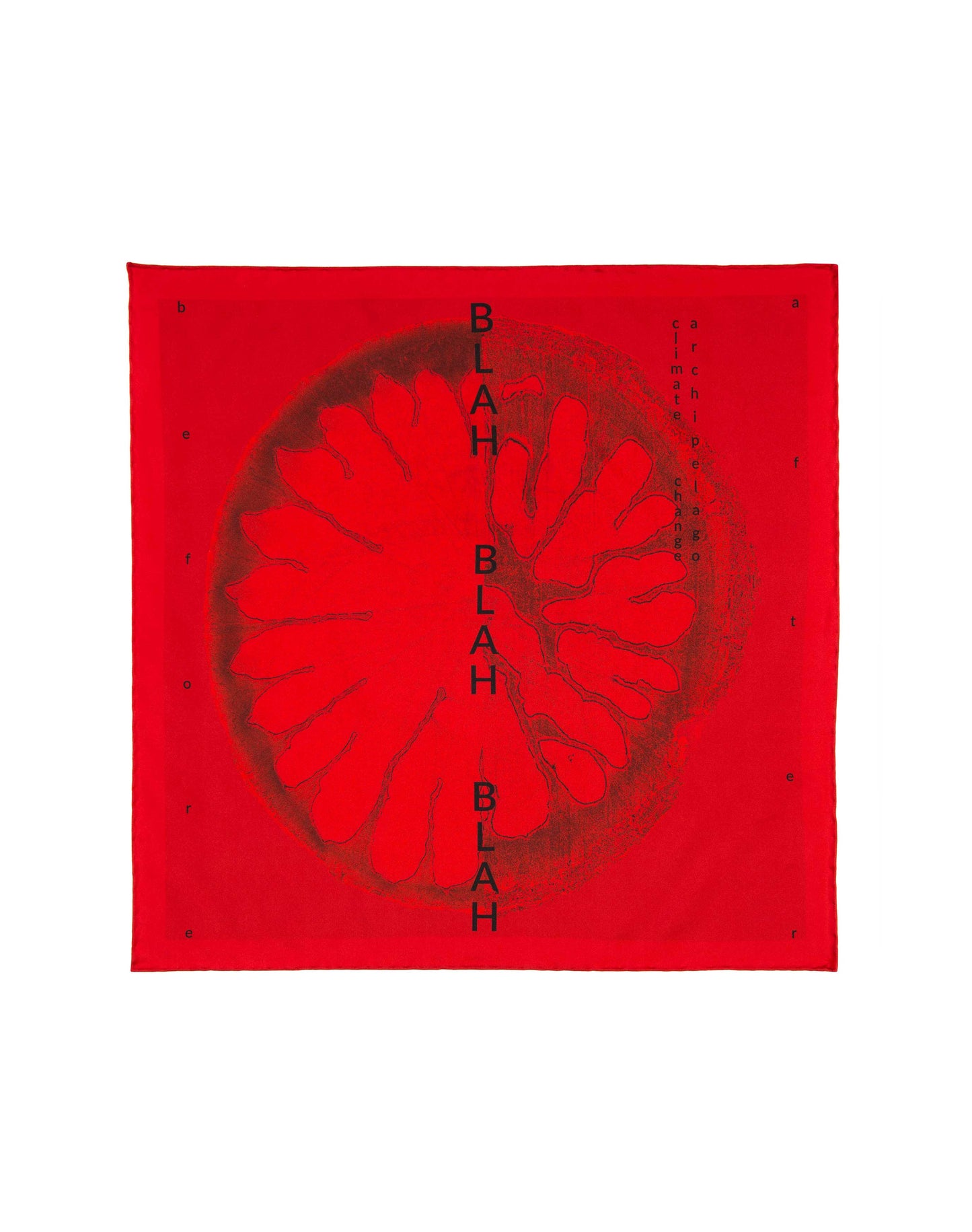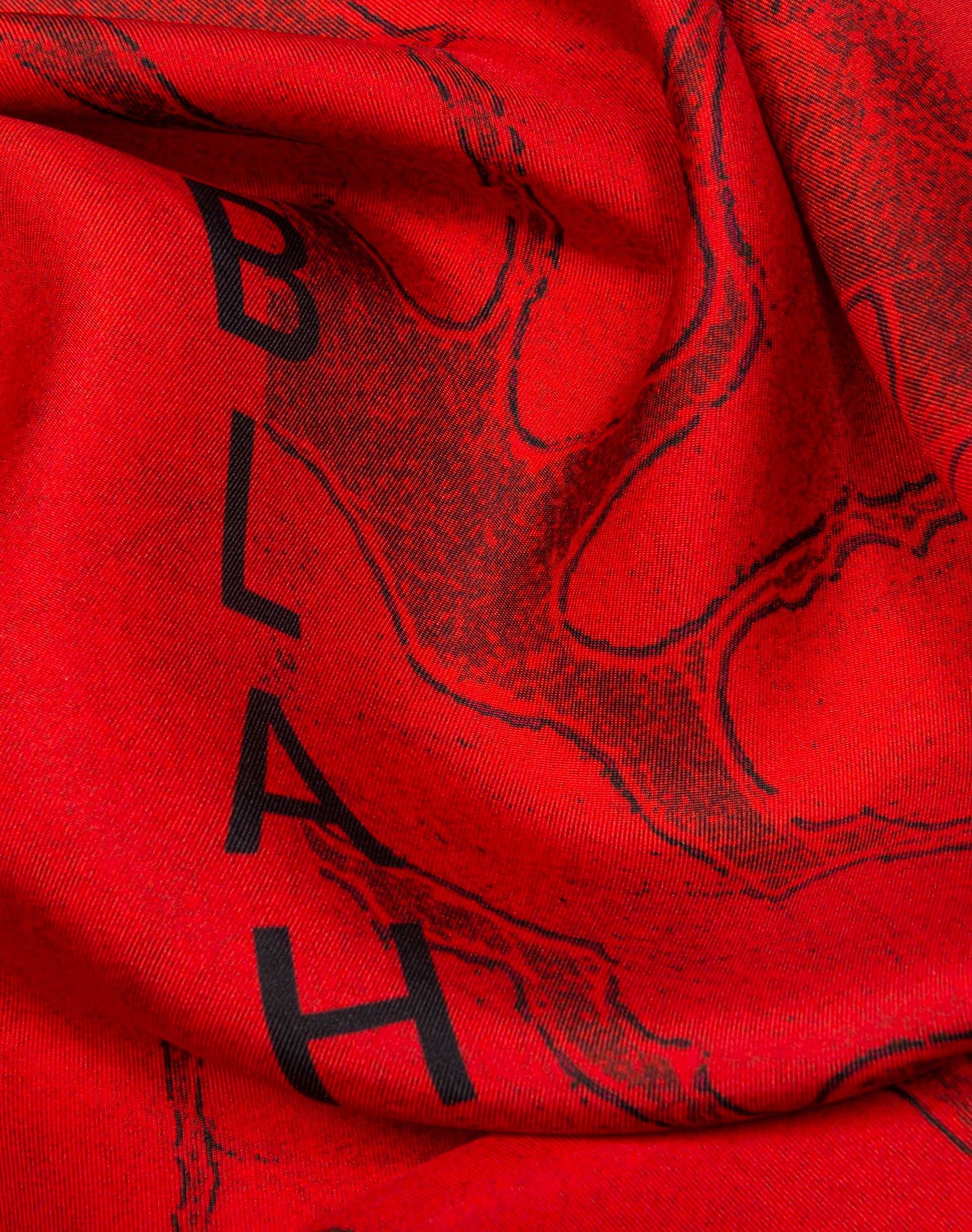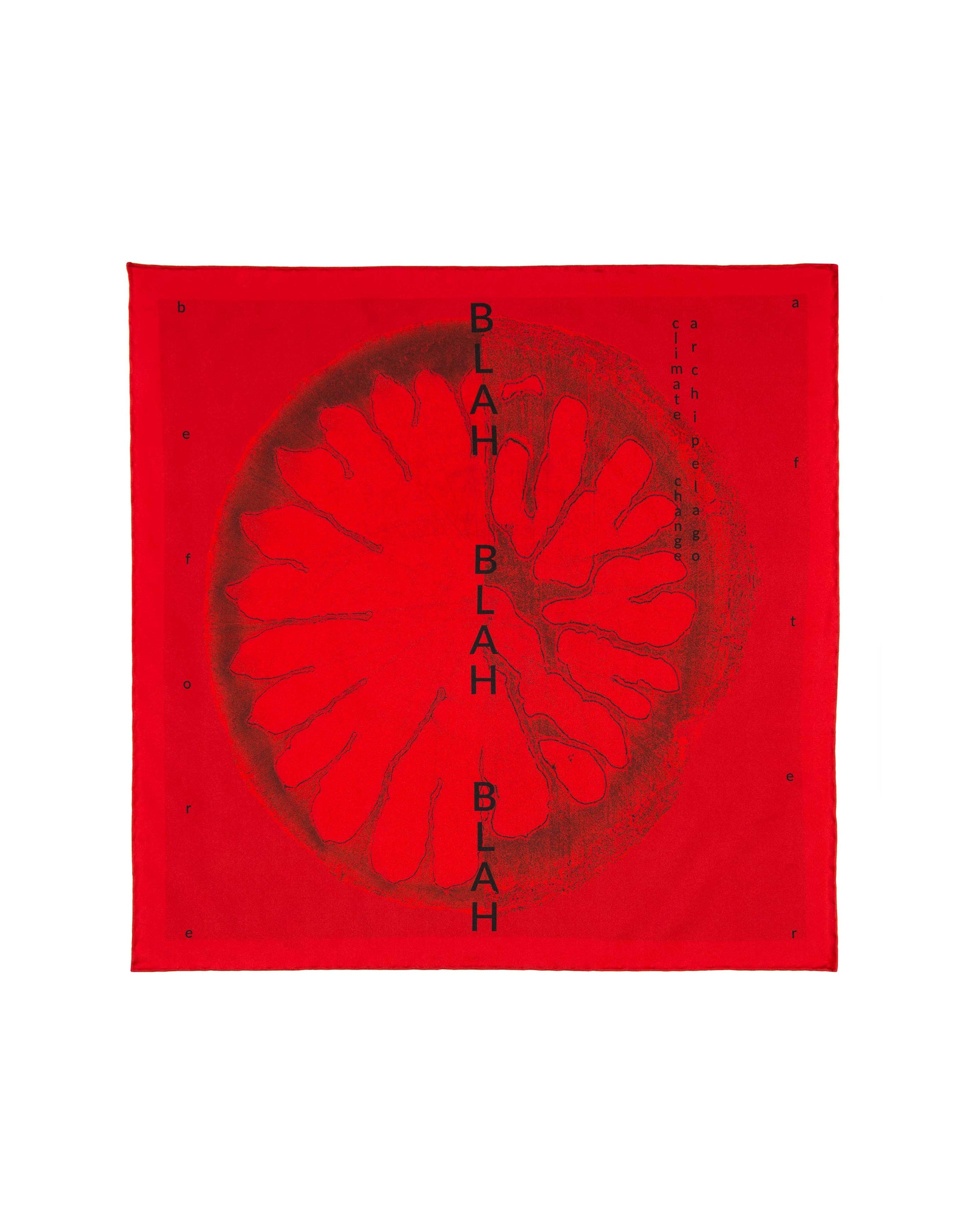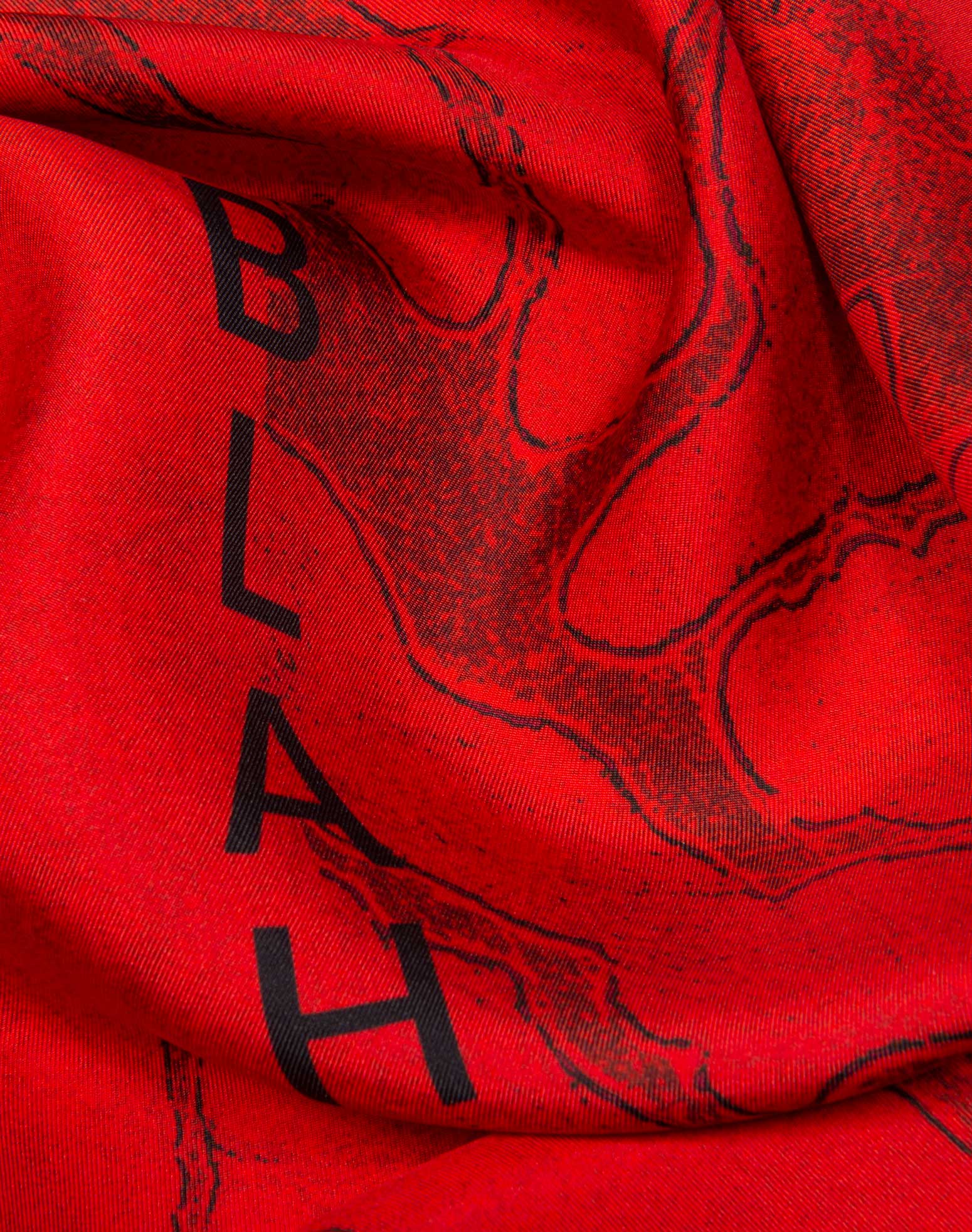CRÙBAG
Blah Blah Blah organic silk bandana
Blah Blah Blah organic silk bandana
Couldn't load pickup availability
This is a story about climate change, ocean acidification and cold-water corals.
Cold-water coral Lophelia pertusa showing increased dissolution and porosity caused by warmer, more acidic seawater. Blah, blah, blah or fact-based evidence of climate change's real impact on the marine environment? Sharing knowledge is activism. Discover the science story below.
Product description
Product description
Designed in Scotland.
Size: 90cm x 90cm.
100% organic silk twill.
Hand-rolled edges.
Made in the UK.
Dry clean only.
Every scarf is accompanied by the Climate Change Collection booklet, and is presented in a luxurious Crùbag gift box.
Inspiration and science story
Inspiration and science story
Inspired by the sobering and detailed synchrotron radiation micro-computed tomography scans of samples of cold-water coral Lophelia pertusa showing increased dissolution and porosity caused by ocean acidification.
We collaborated with Prof Murray Roberts and his team at the Changing Oceans research group, The University of Edinburgh, to create this design using science imagery and bring this fascinating marine science story to you.
Since the industrial revolution, the amount of carbon dioxide released into the atmosphere has increased. But not all carbon dioxide stays in the atmosphere. Around a quarter is absorbed by the ocean and dissolves in seawater. The marine carbonate system, which is assumed to have started in shallow seas about 570 million years ago and then moved to the deep sea about 150 million years ago, plays a key role in regulating carbon dioxide in the atmosphere and the ocean's pH levels.
This ocean-atmosphere feedback loop leaves less carbon dioxide in the air to warm the planet but at the cost of changing the ocean's chemistry. The ocean is acidifying at an unprecedented rate. When carbon dioxide enters the ocean through the atmosphere-ocean interface, it dissolves in seawater, forming aqueous CO2 and then carbonic acid (H2CO3). The water becomes more acidic (the ocean's pH drops). Compared to the last 50 million years, the ocean's chemistry is changing rapidly.
Due to human activity, the ocean is now 30% more acidic than it was 200 years ago. More acidic seawater poses a challenge to many marine organisms, some of which are the base of entire food webs. Many marine species, including shell-forming organisms and corals, need calcium carbonate to build their shells and exoskeletons. More acidic seawater and more carbonic acid mean less calcium carbonate can be held in solid form.
Ocean acidification decreases calcification and in extreme situations can even dissolve seashells made of calcium carbonate. The cold-water corals that build deep-sea reefs form their skeletons from a mineral form of calcium carbonate called aragonite, and aragonite is particularly vulnerable to dissolve as seawater becomes more acidic.
Murray Roberts and his team at the University of Edinburgh have been studying cold-water corals for over 20 years. More recently, they focused their research on the impact of ocean acidification on cold-water coral ecosystems. They have discovered that the dead coral foundations of the reefs are becoming more porous, akin to osteoporosis in humans. Evidence of this porosity can be seen by the naked eye with very detailed 3D scans of coral skeletons showing how the skeletons change in future ocean conditions.
Cold-water corals form fascinating reef structures made of living coral on top and dead coral beneath, which accumulates over time. These dead coral skeletons are critical and rich habitats (homes) for many species but, because they are no longer covered in living coral tissue, they are also the most vulnerable to ocean acidification.
Increased porosity will make the vulnerable sections of these coral reef structures fragile and simpler to a point where the reef systems will start to crumble and even collapse. Cold-water coral ecosystems are found all around the globe and can take many thousands or even millions of years to form. Rapid climate change and the resulting increase in ocean acidification threatens to cause an extinction crisis on a vast global scale.
Positive impact
Positive impact
Each scarf is paired with its written ocean literacy story, sharing the science and images that inspired the collection.
Every purchase helps fund and communicate leading research. Our impact partners are dedicated to solving global issues through marine science.
By wearing your Crùbag products and sharing the story, you are part of the ocean advocacy movement, educating, inspiring others around you.
Shipping and returns
Shipping and returns
FREE SHIPPING IN THE UK. We offer FREE standard shipping to all our customers in the UK.
All orders in the UK, unless otherwise agreed, will be shipped via: Royal Mail, Signed For 1st Class.
INTERNATIONAL ORDERS are charged at £12.50 and may take up to 7-10 working days or longer to reach their destination. We are not responsible for any delays caused by customs clearance processes.
International orders, unless otherwise agreed, will be shipped via: Royal Mail or Fedex International Priority.
RETURNS POLICY: If you are not completely satisfied with your purchase, we are sorry to hear that. Please return the item within 14 days of receipt.
Please refer to our Shipping and Return Policies for more details.
Share




